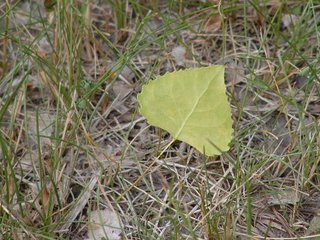 A member of my research staff (thanks eepy!) suggested that the white fluff along the path is from a cottonwood tree. I did a little research, then set off to try to find one. Soon I had my first clue: a triangular leaf, flat on the bottom, with rounded teeth on the edges.
A member of my research staff (thanks eepy!) suggested that the white fluff along the path is from a cottonwood tree. I did a little research, then set off to try to find one. Soon I had my first clue: a triangular leaf, flat on the bottom, with rounded teeth on the edges.At the wetland site I easily spotted a big cottonwood and got a picture of its leaves and fluff. The female trees are the ones producing the cottony seeds, so our tree is a girl. The Eastern Cottonwood is a type of poplar, and it likes wet settings such as riverbanks.
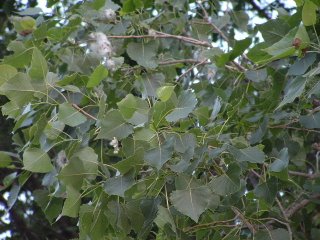
Cottonwood bark:
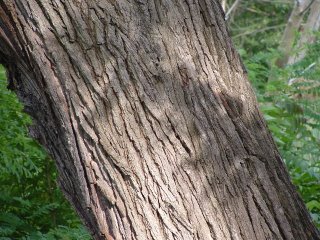
Blurry picture of cottonwood with bonus oriole.
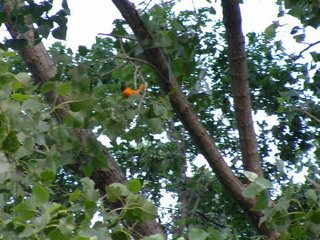
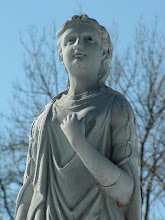
2 comments:
Great blog Marnie!
Definetly a great idea.
If you're interested in birds, there has been a gray catbird nesting at beechwood the past two years, once in some knotweed, which prevented us from cutting it down for a bit. I'm sure you'll see one there...
Thanks, Steve. I've studied some catbird photos and will definitely keep my eyes and ears open.
Post a Comment